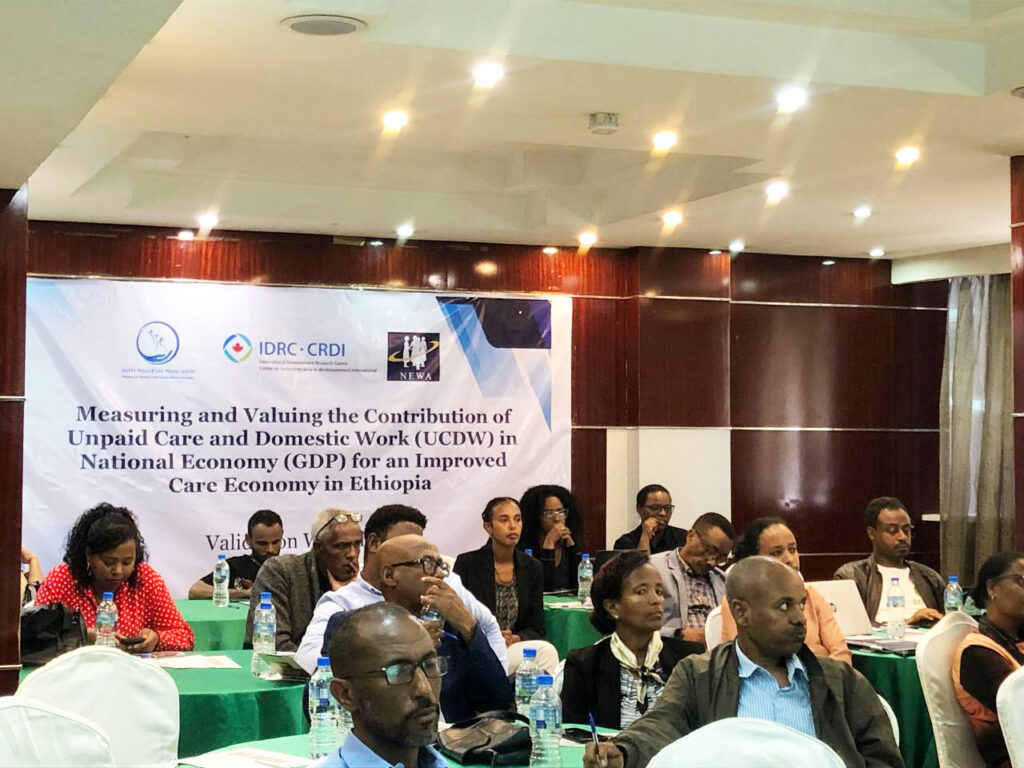Measuring and Valuing the Contribution of Unpaid Care and Domestic Work (UCDW) in National Economy (GDP) for an Improved Care Economy in Ethiopia’
Measuring and Valuing the Contribution of Unpaid Care and Domestic Work (UCDW) in National Economy (GDP) for an Improved Care Economy in Ethiopia’ A project titled “Coupling Unpaid Care Domestic Work with Local Development Agenda for Improved Care Systems in Ethiopia” is being implemented by the Network of Ethiopian Women’s Associations (NEWA) with financial support from the International Development Research Center (IDRC). As part of its efforts to enhance Ethiopia’s care economy, the project has initiated two studies: measuring and valuing the Contribution unpaid care and domestic work (UCDW) in national economy (GDP) and conducting implementation research on the national gender mainstreaming guidelines. The research titled “Measuring and Valuing the Contribution of Unpaid Care and Domestic Work (UCDW) to the National Economy (GDP) for an Improved Care Economy in Ethiopia” focuses on estimating the monetary value of unpaid work using two widely accepted methods: the replacement cost method and the opportunity cost method. These methods are used based on detailed data from the Ethiopian Time Use Survey (TUS, 2013) to categorize specific unpaid activities—referred to as extended System of National Accounts (SNA) activities—and wage information derived from the 2022 Ethiopian Employment and Unemployment Survey (EUES). The replacement cost method, calculates the cost of hiring someone to perform these unpaid tasks, reflecting their economic value in market terms. Based on this method, the estimated annual wage value of unpaid domestic work, care, and community services in Ethiopia amounts to ETB 1,039.23 billion, representing 16.8% of the 2022 GDP. The opportunity cost method, on the other hand emphasizes the economic trade-offs faced by individuals, who disproportionately shoulder unpaid work responsibilities. Based on this method, the estimated annual wage value of unpaid domestic work, care, and community services at ETB 1,394.88 billion, representing 22.6% of the 2022 GDP. These findings challenge conventional economic frameworks that exclude unpaid labor from GDP measurements, perpetuating its invisibility in national policy discourse. They underscore the critical economic and social value of UCDW, highlighting its foundational role in sustaining households and broader economic systems. Recognizing UCDW as a legitimate economic activity presents Ethiopia with an opportunity to address long-standing gaps in social protection, labor policy, and economic planning. On April 4, 2025, at Harmony Hotel in Addis Ababa, a validation workshop for the research was held, attended by state minister delegates from MoWSA, representatives of other implementing ministries, CSOs, and invited government and international non-governmental organizations.

